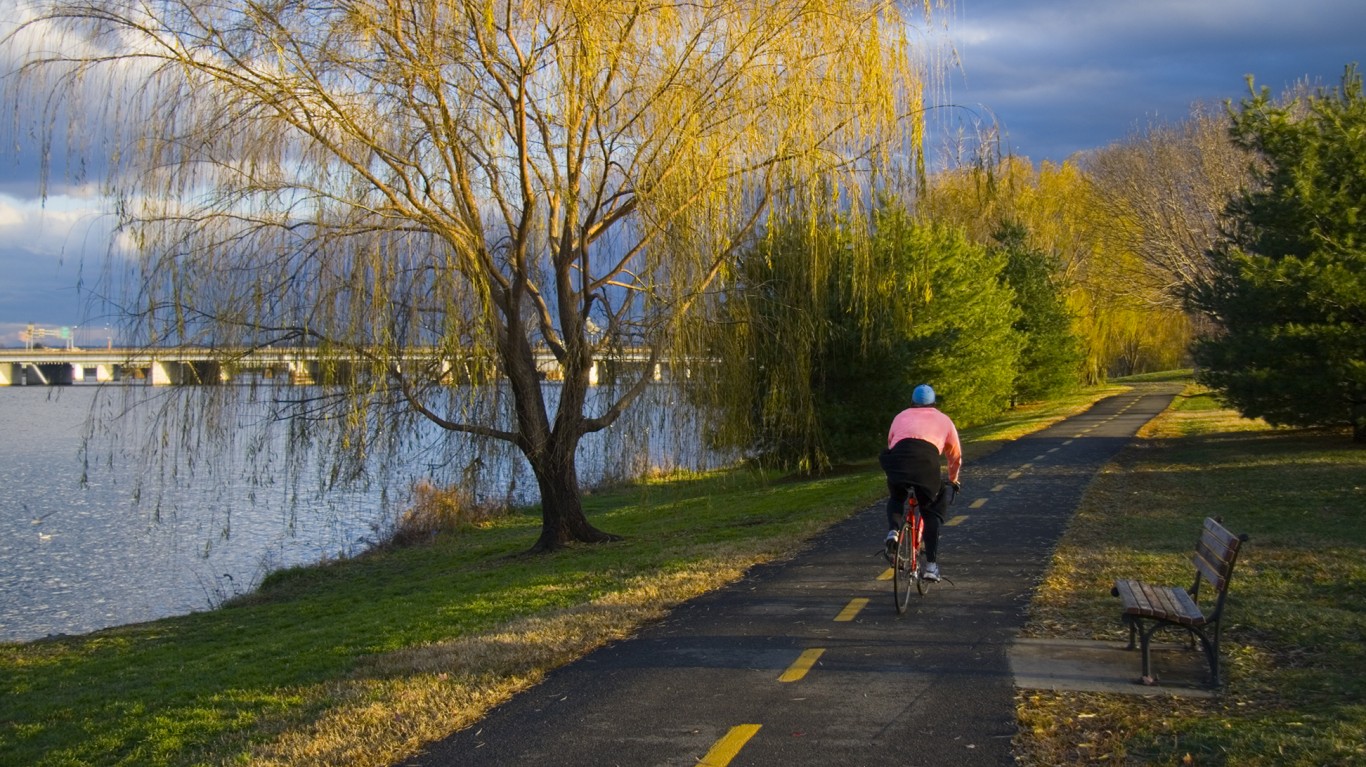Special Report
This City Has the Absolute Best Park System in the US -- and It's Not New York

Published:
Last Updated:

It’s almost impossible to imagine New York City without Central Park. Frederick Law Olmsted’s first (and arguably finest) city park design fulfilled his vision that a common green space must be easily accessible to all residents and forever be defended from private takeovers. It was a radical idea in 1858 when Olmsted won the commission to create the park, but it is one that over the years has become a core feature of city park development.
Even before Olmsted, though, Americans carved out public green spaces that have become local, if not national treasures. Boston Common, created in the 1630s, and the National Mall, added in the 1790s, spring first to mind. That desire for green space spread as the country grew, and the idea of city parks is inextricably woven into the fabric of American city life. The equation goes something like this: cities with more parks are nicer places to live. (But these are, in fact, America’s 50 best cities to live in.)
As with most everything American, there’s a ranking for cities with the best parks. The Trust for Public Land just released its 2019 rankings of the best U.S. cities for public city parks. The rankings are based on four factors: accessibility, investment, acreage and amenities. Using those four categories, the Trust for Public Land named Washington, D.C., as the best city in the country for public parks.
The nation’s capital, with a population of about 688,000, has a park within a 10-minute walk for 98% of its residents. The national average is 54%. Among the top 10 cities, only San Francisco (population of about 878,000) and New York (8.68 million) scored higher with a perfect 100%.
Access to Washington’s parks is roughly equal regardless of income level or ethnicity, even though just 21% of the city’s land is used for parks and recreation. The national median is 15%.
Washington also has invested substantially in its park system. Mayor Muriel Bowser told website Route Fifty, “D.C. is truly a city of parks that serve as hubs of activity and beauty for neighborhoods and provide substantial social, economic, and health benefits to our residents. We’ve invested more than $200 million to ensure all residents have access to playgrounds, nature trails, and other public parks that have made D.C.’s park system the envy of cities across the nation.”
The city’s parks rank in the 86th percentile for basketball hoops, with nearly six per 10,000 residents. There are about two dog parks per 100,000 residents (78th percentile) and 1.7 playgrounds per 10,000 residents (21st percentile).
Park recreation and senior centers rank in the 98th percentile, with 2.3 per 20,000 residents, and the city’s parks rank in the 81st percentile with nearly three bathrooms per 10,000 residents.
The average size of a park in Washington is 1.4 acres, and the city’s oldest park is the National Mall, which was part of architect Pierre L’Enfant’s and George Washington’s original 1791 plan for the nation’s capital.
The other nine cities named in the country’s top 10 are, in order: St. Paul; Minneapolis; Arlington, Virginia; Portland, Oregon; Irvine, California; San Francisco; Cincinnati; New York City; and Chicago.
Among the country’s thousands of city parks, there are many must-visit hidden gems in America’s biggest cities.
And if you’re planning to travel outside the city this Memorial Day weekend, be sure to check out the most beautiful places in the country.
Are you ready for retirement? Planning for retirement can be overwhelming, that’s why it could be a good idea to speak to a fiduciary financial advisor about your goals today.
Start by taking this retirement quiz right here from SmartAsset that will match you with up to 3 financial advisors that serve your area and beyond in 5 minutes. Smart Asset is now matching over 50,000 people a month.
Click here now to get started.
Thank you for reading! Have some feedback for us?
Contact the 24/7 Wall St. editorial team.